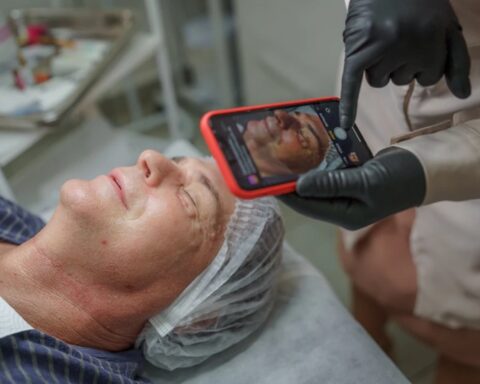New Delhi, October 15, 2023: Managing blood sugar levels is crucial for individuals with diabetes as it is a chronic condition that affects millions of people worldwide.
it is also important to be aware of the potential complications that can arise from the disease. These complications can affect various parts of the body, including the heart, kidneys, eyes, skin, and more.
One of the major risks of diabetes is coronary artery disease, which can lead to heart attacks and chest pain. Diabetes also increases the risk of stroke, as it can cause the narrowing of blood vessels and the formation of blood clots. Reduced blood flow due to peripheral artery disease can result in poor wound healing, leg pain, and even gangrene.
Diabetic nephropathy is another complication that arises from prolonged high blood sugar levels. It damages the small blood vessels in the kidneys, leading to kidney disease or failure. Diabetes can also damage the blood vessels in the retina, causing diabetic retinopathy and potentially leading to blindness. Additionally, individuals with diabetes are at a higher risk of developing cataracts and glaucoma.
Nerve damage, known as neuropathy, is a common complication of diabetes. It can result in pain, tingling, numbness, or loss of sensation in the extremities. Autonomic neuropathy affects the nerves that control bodily functions, causing digestive issues, blood pressure problems, and sexual dysfunction.
People with diabetes are more prone to skin problems, including bacterial and fungal infections, as well as slow wound healing. Furthermore, diabetes has been associated with an increased risk of hearing loss, gum disease, dental problems, and mental health issues.
Gastroparesis, caused by nerve damage, affects the stomach’s ability to empty, leading to digestive problems. Non-alcoholic fatty liver disease is more common in people with diabetes as well. The disease can also lead to foot complications, including poor circulation, neuropathy, and foot ulcers that may eventually require amputation.
Recurrent episodes of low blood sugar (hypoglycemia) or persistently high blood sugar (hyperglycemia) can result in immediate health problems and contribute to long-term complications. Furthermore, some diabetes treatments, such as insulin and certain medications, can cause side effects such as low blood sugar and weight gain.
To effectively manage their blood sugar levels and reduce the risk of complications, individuals with diabetes should work closely with their healthcare team. This involves monitoring blood sugar, taking prescribed medications, maintaining a healthy lifestyle, and managing other risk factors like high blood pressure and high cholesterol. Regular check-ups and screenings are also vital for early detection and management of potential complications.
Sources:– American Diabetes Association





